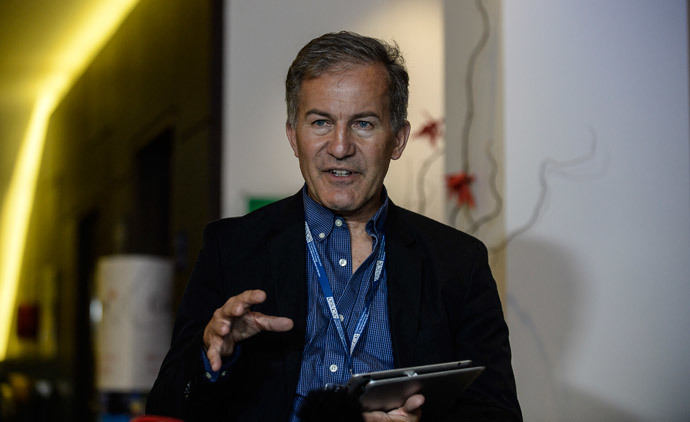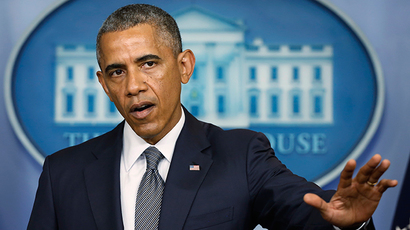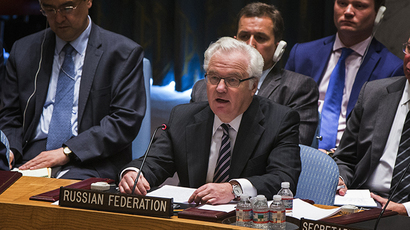Expert access to MH17 crash site 'fairly good' - OSCE mission
A spokesman for the OSCE mission monitoring the Malaysian Boeing 777 crash site told RT that international experts had problems getting to it safely through the warzone, but that their access to the site itself has been fairly well organized.
The OSCE mission in Ukraine, which has been working for three months, has actually been focused on monitoring the crash site of the Malaysian Boeing 777 from day one, the mission’s chief monitor and spokesperson, Michael Bociurkiw, told RT.
Members of the OSCE mission to Ukraine were accompanied by Ukrainian civil aviation experts to the crash site, which after four days of work at the site seem to be “quite pleased” with the results of searching for clues of what caused the crash.
It took four days for international experts to gain access to the crash site. The reason is that even after Ukrainian President Petro Poroshenko announced a 40-kilometer ceasefire zone around the crash site, Malaysian experts came under heavy shelling from the Ukrainian army while making their way within the ceasefire zone.
“We facilitated their passage to the train station in Torez, some 15 kilometers from the crash site, where the bodies (of the passengers) have been stored in refrigerated cars,” reported Bociurkiw, adding that Malaysian experts were also accompanied to three or four of the eight major impact sites, where they “were able to look at the situation there.”

“I want to be clear: these are forensic experts, they are not crash investigators from the Netherlands,” Bociurkiw said, adding that “we had fairly good access (to the site) according to our discussions with them (experts).”
The OSCE mission is not to investigate anything, and actually this is the first time the OSCE has been involved with a plane crash of that sort, Bociurkiw acknowledged.
“Our mandate is clear: to establish the facts and report on them, as we’ve been doing over the last three months and also to facilitate dialogue,” the OSCE spokesman said, stressing that their second role as mediator has been successful primarily because the mission has been on the ground for so long and the relationship has already been established.
The work of the OSCE is far from being simplistic, Bociurkiw explained, as the members of the mission are busy collecting information every day and report this information “in a very neutral and objective way.” That information goes to the 57 members states of the OSCE, including Russia, the US and Ukraine.
Bociurkiw believes that logistical and security issues are to be blamed for the international experts arriving at the crash site so late.

“Don’t forget that the crash scene is in the middle of a conflict zone,” he said.
The large number of checkpoints in the zone explains why it takes so long, because “everywhere you have to explain what you’re going to do.”
Despite the work already done, there are a lot of things to take care of: for example the Malaysian experts have just arrived and have only just begun to get acquainted with the situation on the ground.
US President Barack Obama has voiced concerns that the work of
experts at the crash site is being hindered.
Donetsk Republic self-defense militia promised international
experts access to evidence, which they are fulfilling: they
already handed over the black boxes of the crashed jet to the Malaysian
delegation on Monday.
Michael Bociurkiw believes that probably the only thing that the anti-Kiev fighters failed to ensure was proper crash site perimeter security.
“It is a big area, there are many villages there and so on, but normally, when a crash like this one happens, the first thing one would expect is a secure perimeter to be established. That did not happen and we have reported on that,” the OSCE chief monitor in Ukraine said.
The refrigerator train carrying the bodies of crash victims arrived in the city of Kharkov in eastern Ukraine on Tuesday. The train is destined for the Malyshev Factory, a state-owned manufacturer of heavy equipment. All investigations will take place in the government-controlled city of Kharkov, after which the bodies will be handed over to relatives.














